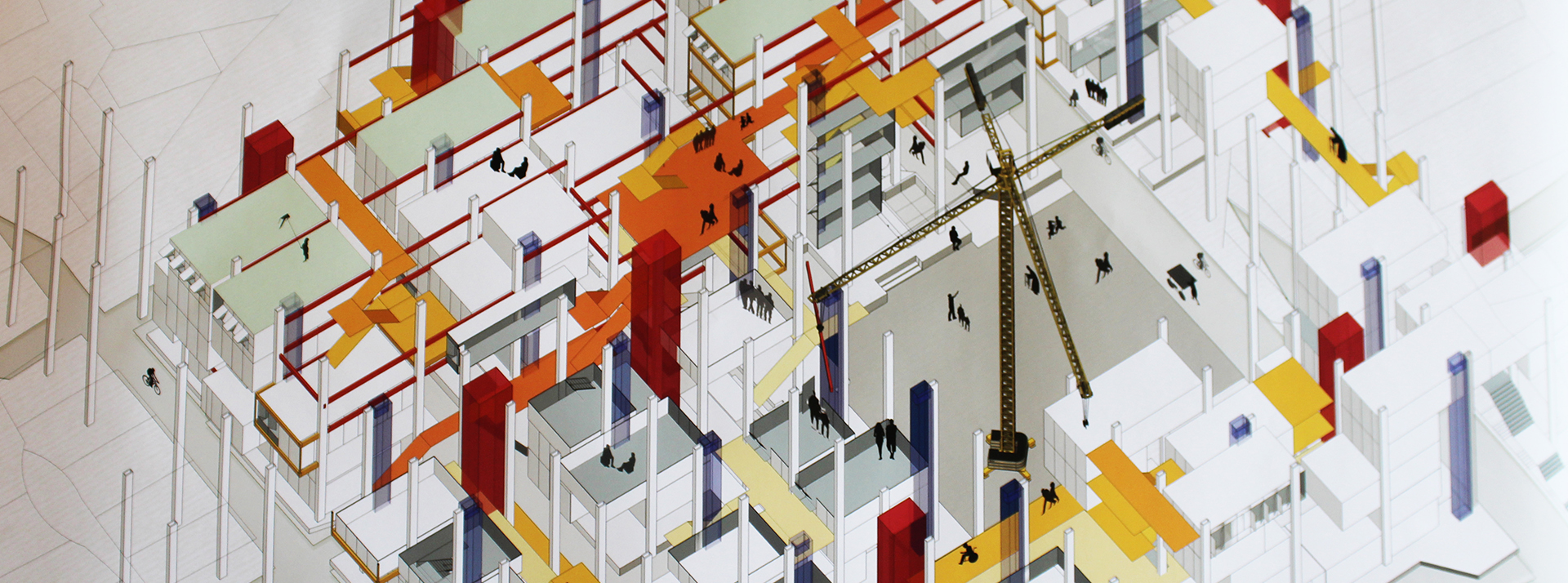Bachelor’s in Design
Admissions 2025
The Faculty of Design at CEPT offers undergraduate (Bachelors in Design, Honours) and postgraduate (Masters in Design) programs that address various contemporary streams of knowledge in an ever-expanding discipline of design. Its programs are in response to both current and emerging opportunities, whilst advancing two compelling roles, of the designer as a professional, and of design to improve the quality of life.
The Bachelor of Design program aims to cultivate a design community driven by context sensitivity, critical reflection, domain awareness, and professional attitudes. Its unique choice-based pedagogy coupled with a studio-based learning framework empowers students to independently explore their design aspirations through a blend of theoretical grounding and real-world engagement. Human-centred principles, systems thinking, a collaborative spirit, an analytical approach, an appreciation of aesthetics and a sense of curiosity fuel the learning environment, ensuring graduates emerge as resourceful designers prepared to engage with a diversity of opportunities. Informed by both local and global contexts, the program embraces progressive practices to shape a future of responsible design.
Students can either access undergraduate design education in its broadest sense by not selecting a major, or align their learning towards their desired domain by committing to one of two distinct majors, Product Design, or Communication Design.
The Bachelor of Design (Hons.) is the only 5-year undergraduate design program in India. It benefits from peer perspectives at the Common Foundation Program (CFP), which includes students from Architecture, Planning and Technology, and a focussed final year emphasising research and professional practice through industry opportunities. The Honours degree is based on the extent of engagement with the design curriculum and the enhanced credits earned.
Students avail a choice-based education focussing on their interests, amidst an offering of varied design studios. Through these choices, students navigate their learning and can decide not to select a major, or then major in either Product Design or Communication Design. All students will be awarded a Bachelor in Design (Honours) degree at the end of 5 years, regardless of their choices, as long as they have completed the prescribed number of credits.
The B.Des (Hons) program is structured through essential (mandatory) courses, design studios, and electives. CEPT University’s learning pedagogy emphasises the Studio Unit system framework; where learning and teaching are centred around studios or units which comprise of small groups with a faculty-student ratio of 1:8 - 1:12 maximum. These choice-based units account for 70% of the total semester credits.
CEPT benefits from a diversity of teaching methods through a wide access to tutors either with academic strength, or with professional experience. Tutors are expected to teach to their strengths and interests. Students typically engage with tutors within dedicated weekly time allocations. Whilst lecture based courses go on for 12 weeks, the studio unit continues for 16 weeks till the end of the semester.
The Faculty of Design offers various studios and courses. The latter include design thinking, design processes and methods, fundamentals of colour, composition, typography, illustration, design history theory, materials and manufacturing methods, ergonomics, digital technologies, and design research, etc.
Studios at FD cover a vast range of topics focussing on:
- Medium and Materiality
- Practices and Processes
- Systems and Strategies
- Research and Profession
The below list provides a sense of studios that may be available for students to choose from. This list is indicative, not exhaustive and subject to change based on various factors ranging from tutors availability and student interests, to curriculum revisions.
- Board Game Design - Analogue
- Body, Space & Time
- Branding & Identity Design
- Crafted Product Design
- Design for Persuasive Visual Communication - Strategies & Systems
- Design for Play
- Design for Screens
- Designed Objects - Systems Thinking
- Documentary / Fiction - Live Action Film Making
- Drawing & Imaging
- Dynamic Graphics
- Electronics & Tech Tinkering
- Exhibition / Museum Design
- Experience Design
- Experimental Typography
- Expressive Typography
- Form to Product (Simple Product Design)
- Graphic Novel
- Information Design
- Integrative Design Studio
- Interactive Media Design
- Letter Design
- Light, Colour & Design
- Packaging Design
- Phygital Design
- Product: Technology + Innovation
- Publication Design
- Service Design - Design for Social Innovation / Impact
- Short Animation
- Simple Furniture Design
- Space, Structure & Materiality
- Speculative Design (Futures)
- Technically Complex Product (any complex domain eg; healthcare, mobility, tech oriented) Design (TCP)
- Visual Storytelling
- Wayfinding & Signage
- Zine Making
Apart from being introduced to a variety of industry professionals who engage with CEPT as visiting faculty or guest lecturers, students also have the opportunity to access professional networks with industries, companies, studios and experts they work with during their internships and industry projects. Students are also supported by CEPT’s growing placement and outreach activities.
CEPT has several long-standing MoUs with prestigious universities abroad, which offer exchange programs that are available to CEPT students. These are currently limited for the undergraduate design program, however, we are continuously seeking to expand our exchange collaborations with universities that offer programs in similar fields.

